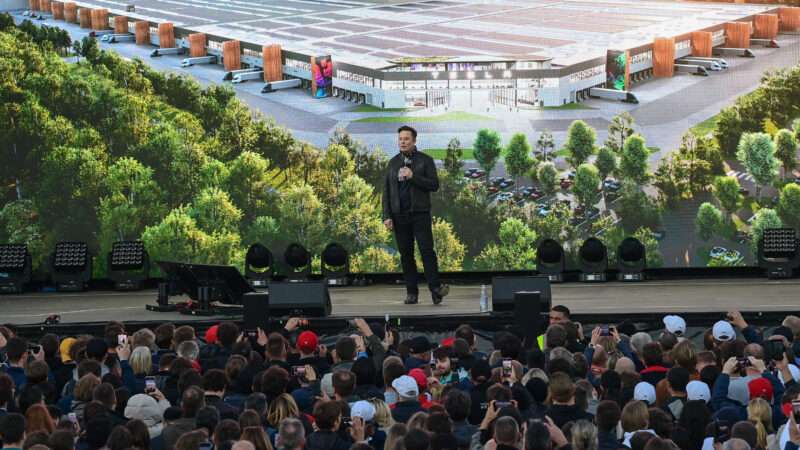
Today, news surfaced via a regulatory filing that Tesla CEO Elon Musk had recently become Twitter's largest shareholder, buying a 9.2 percent stake in the company as of March 14, worth about $3 billion at the time of purchase. This tracks with cryptic tweets he sent a little more than a week later, gauging users' sense of the company's commitment to free speech:
The consequences of this poll will be important. Please vote carefully.
— Elon Musk (@elonmusk) March 25, 2022
It's not clear at present what type of involvement Musk will have in Twitter's decision making processes, or whether he will be asked to join the company's board. (Twitter's former CEO and co-founder Jack Dorsey will be leaving the board next month.)
Given that Twitter serves as the de facto public town square, failing to adhere to free speech principles fundamentally undermines democracy.
What should be done? https://t.co/aPS9ycji37
— Elon Musk (@elonmusk) March 26, 2022
For free speech supporters who have panned Twitter's content moderation practices, like removing former President Donald Trump from the platform following the January 6 Capitol riots and suppressing sharing of the New York Post's accurately reported story on Hunter Biden's laptop—some of which Dorsey has admitted were errors—Musk's possibly greater involvement is a welcome change. Musk has long considered starting an open-source social media platform to serve as a rival to Twitter. Today's news indicates his interest in fixing what's already there. Or his interest in performance art. Or in making money and sending stock prices soaring with his every move.
"Twitter is particularly vulnerable to outside pressure because, unlike Google, Facebook, Amazon, and Snap, the company's founders don't have special voting control over its future," report Giles Turner and Craig Trudell at Bloomberg. But, "the type of form used [in the Securities and Exchange Commission filing] often indicates the investor isn't seeking to acquire control of a company, or to influence who controls it." Musk has taken a passive stake in the company (though that could change in the future).
"I don't think we should be the arbiters of truth," said Dorsey in response to a farcical March 2021 congressional hearing in which members of Congress hectored tech CEOs about how (ill-defined) misinformation spreads on their platforms, "and I don't think the government should be either." From everything Musk has said publicly, it appears he aligns with Dorsey's ethos. It remains to be seen whether Musk will exercise his newfound influence for good or maintain a more understated, behind-the-scenes presence at Twitter (while continuing to roil normies with memes, of course).
The post Elon Musk Buys 9.2% of Twitter, Mysteriously Polls Users About State of Free Speech appeared first on Reason.com.







